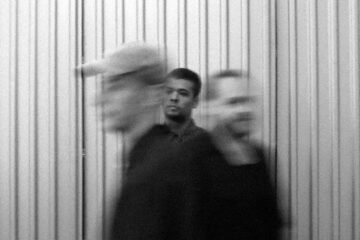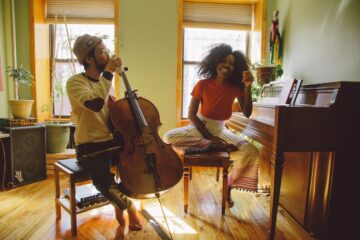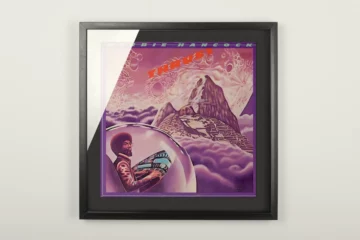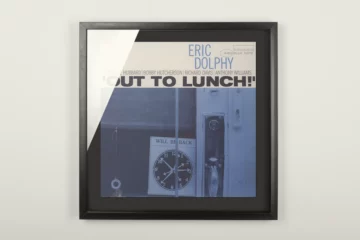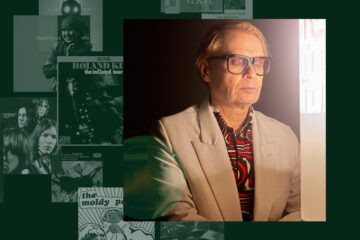»When you are in a jazz Kissa, you can forget about the real world,« says Katsumasa Kusunose. The 62-year-old Japanese is a journalist and photographs bars where people go to listen to music. There are over 600 of them in Japan. You can find 100 in Tokyo alone. Often in a small space, with a few seats, a bar – and equipment that you wouldn’t even expect to find in trendy clubs or collections. »When you sit in front of the big speakers and bathe yourself in the sound of jazz, you can only focus your attention on the music«, Katsumasa tells HHV. There are few places left where you can have that kind of experience today, he says. Jazz Kissas, though, Katsumasa is convinced, are such places.
Magic Places
The history of these bars goes back to the 1950s. After the Second World War, Japanese youth listened to kokujin jazz, or black jazz. Acts like Art Blakey and The Jazz Messengers had cult status and influenced pop culture. But live performances by US stars were rare. And records were expensive. Jazz kissas were considered a refuge where you could listen to good music for a cup of tea. Nowadays, the mass jazz boom has died down. But the small cafés with their large record collections and even larger speakers have not disappeared; on the contrary, new ones are opening up again. Most recently, the label boss of Mule Musiq opened a listening bar in Tokyo. Dimmed light, dark wood, a cupboard full of records, lots of wine on the shelves – an aesthetic of retreat in a world where everyone is listening all the time anyway.
_»When you are in a jazz Kissa, you can forget about the real world,«
Katsumasa Kusunose
_»When you are in a jazz Kissa, you can forget about the real world,«
Katsumasa KusunoseIt was in 1977 that he entered a jazz kissa for the first time, says Katusmasa Kusunose. It was only through this experience that he was able to discover the charm of jazz. He has been visiting jazz kissas for over 40 years and has been to over 800. By saying sentences like »For me, staying in a jazz kissa is a way of life«, he is hinting at how much such listening bars are anchored in daily life in Japan. For some people they are an institution, considered as a place to meet, where one can very well be alone – with oneself and the music. The sound is the focus, listening becomes a ceremony. In other words: If you feel comfortable among refurbished JBL speakers and tube amplifiers from the 60s, if you understand music as an attitude to life and less as a consumed commodity, you cannot avoid a visit to a Jazz Kissa.
Music As A Lifestyle
»The most famous and popular kissa in Japan«, says Katsumasa, »is called Jazz Kissa Basie and is located in Ichinoseki City« – less than two hours from Tokyo on the Bullet Train. The JBL sound, he says, is just as fantastic as at the EAGLE in Tokyo, which has been around for 53 years and a place »you must visit,« says Katsumasa. The man should know: With »Gateway To Jazz Kissa Vol.1«, the journalist published a magazine in 2020 that not only focuses on jazz kissas, but also on the people who run them. For this, he spoke with the owners of jazz kissas in Tōhoku, Japan’s largest island. If you Google the region, you see blossoming cherry trees in front of snow-covered mountains. A picture-postcard idyll, one would think. But in 2011, a tsunami destroyed large parts of the coastal region.
Today, the region is part of the »Jazz Kissa cultural area«, as Katsumasa writes in the magazine. He portrays four jazz kissas on 50 pages. Pictures show bars that could sometimes be mistaken for English pubs, then again for hip breakfast bars in Kreuzberg. With one difference: the huge sound system. And thousands of records and CDs lined up on shelves. In pictures of the Vanguard, a kissa in Miyagi Prefecture, you can imagine the smell of coffee hanging in the air, cups clattering softly and vinyl crackling on a JBL system from the 70s. A feeling that is part of life for many Japanese – and one that Katsumasa Kusunose won’t let go: »I have been passionate about many things other than jazz in my 62 years of life, but I think the last thing left for me to enjoy may be jazz Kissas.«



